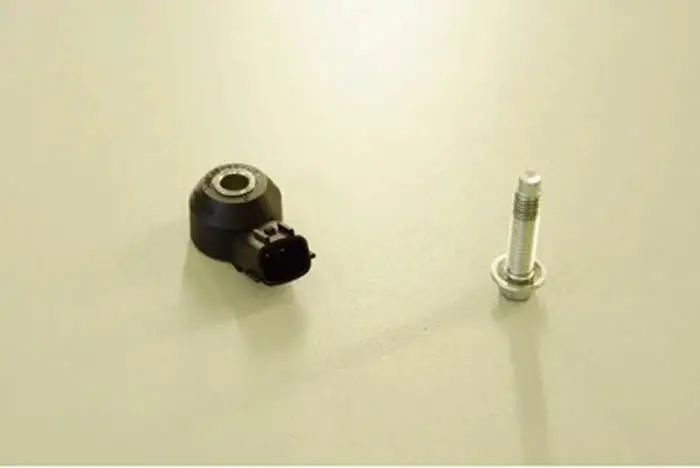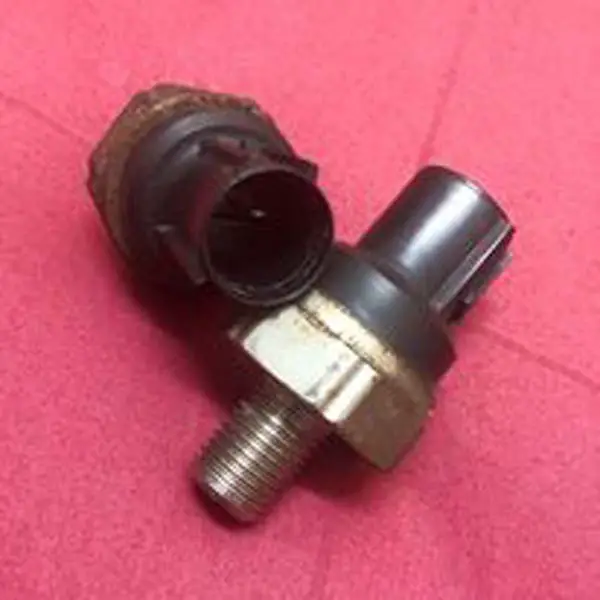
Knock sensors are important for the proper working of the engine because they protect the engine from damage caused by an excessive amount of air pressure created by the air and fuel mixture. Your car will break down if the engine experiences significant damage. You can drive with a defective knock sensor, but if there is pre-ignition in the cylinder, it could damage your engine in the long term, and the car won’t pass most safety inspections until it’s fixed.
When the knock sensor fails, it will usually cause at least one or more noticeable symptoms. Following are the symptoms of faulty knock sensors, which should be considered seriously when you are aware of any of them.
Related Post: Car Knock Sensor: What It Does, How It Works & Why It Occurs
Symptoms Of A Bad Knock Sensor
1. Poor Engine Performance:

The powertrain control module may adjust the ignition timing improperly due to a defective knock sensor, resulting in poor engine performance. If the knock sensor isn’t working properly, it might cause plenty of faults with the vehicle. Most faulty knock sensor symptoms are clear, such as poor acceleration and a rough engine idle. The engine appears to be seizing up or shutting down completely.
2. Pinging Noise from the Engine
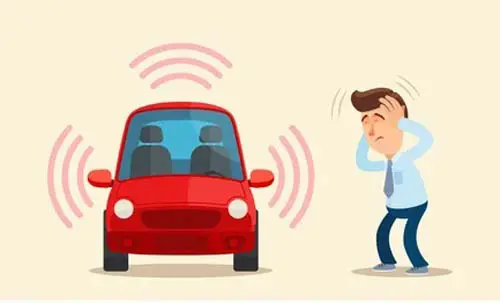
The powertrain control module may not recognize or adjust spark knock if the knock sensor fails. As a result, the engine may produce a metallic pinging noise. Until the problem is fixed, the sounds will continue to increase louder. The noise will most likely be a loud thumping sound. It may not seem loud at first, but after driving for a time, it becomes louder. Fuel and air igniting inappropriately inside the cylinder and failing to reach a stage of combustion cause noise.
3. Check Engine Light
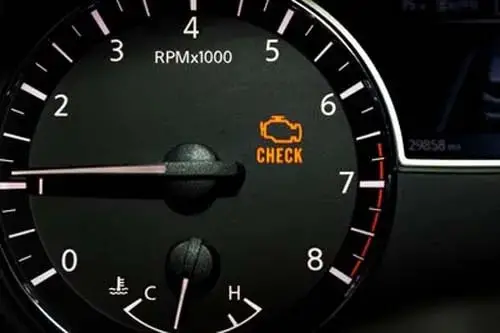
An illuminated check engine light is the most likely indicator of a faulty knock sensor. When the powertrain control module detects a problem with the knock sensor or its circuit, the check engine light activates, and a diagnostic trouble code is stored in the module’s memory. If your vehicle’s Check Engine Light comes on, have it inspected by a qualified mechanic as soon as possible.
Related Post: Knock Sensor Check Engine Light Comes On And Off – Why
4. Decreased Fuel Efficiency

There are a lot of factors, due to which fuel efficiency can be lessened. One of them is the bad or faulty knock sensor which needs to be replaced. A faulty knock sensor may also prevent the engine from accelerating smoothly while traveling on the highway, resulting in a loss of fuel mileage. Improper ignition timing might result in unnecessary knock or ignition, resulting in reduced fuel mileage.
5. High HC and CO levels in Exhaust
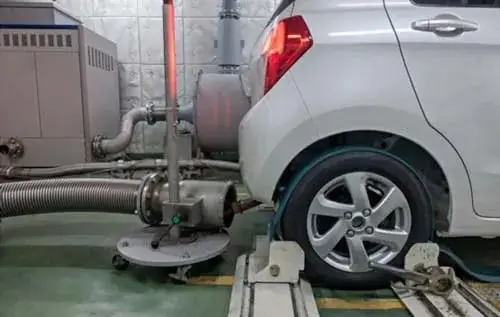
One of the factors that show the car has a faulty knock sensor is the increased level of Hydrocarbons and Carbon monoxide in the exhaust gas emissions. A faulty knock sensor might result in plenty of problems. The first is a failure to pass emissions tests. Even if you have inspected all internal engine problems, if the engine is running on the rich mixture, the fuel mixture will not pass. Second, after the catalytic converter, there are higher HC levels in the exhaust stream.
In conclusion, these are symptoms that show a faulty knock sensor. Whenever you face any of them, do visit the dealership or any local car mechanic to diagnose and replace the knock sensor, if necessary. Otherwise, it will cause some serious problems to the vehicle, after driving for a long time with a faulty knock sensor.
Related Post: Top 5 Symptoms Of A Bad Knock Sensor: Don’t Ignore These!
FAQs
The knock sensor is a vital part of the engine management system, and as such, it is important to ensure that it is in good working condition. How often you need to replace the knock sensor will depend on the make and model of your vehicle, as well as its driving conditions and maintenance schedule. However, as a general rule of thumb, it is recommended that you replace the knock sensor every 150,000 miles.
If the knock sensor is not replaced, the engine will continue to run without the ability to properly adjust the air/fuel mixture. This will cause the engine to run lean, which can lead to increased engine temperature and eventually engine damage.
Related Post: Is It Safe To Drive With A Faulty Knock Sensor? Read This!
A knock sensor is also known as an engine ping or detonation sensor. The knock sensor is a piezoelectric sensor that detects knocking in the engine. Knocking is caused by the combustion of the fuel-air mixture in the engine. The knock sensor produces a signal that is used to adjust the ignition timing to prevent knocking.
Sign Up

